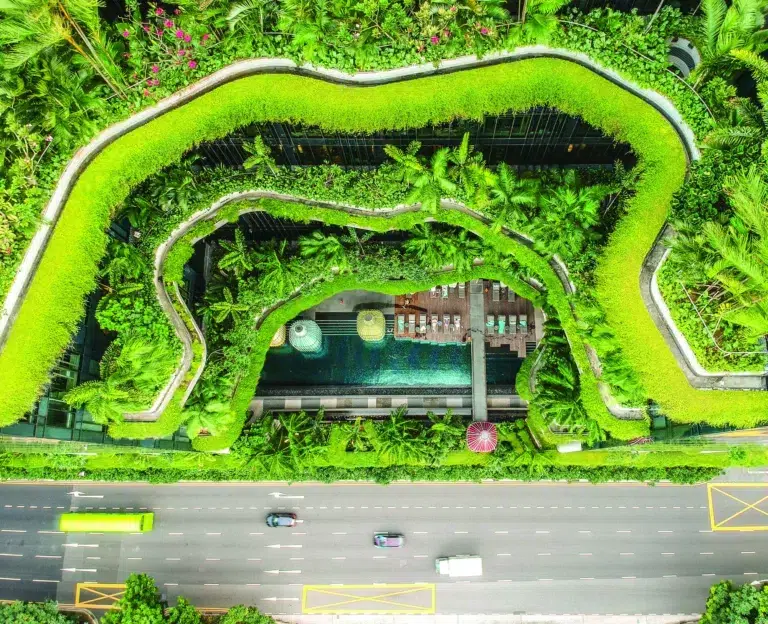News roundup: South Korea hotel investments dipped in 2023, and other headlines

For PropertyGuru’s real estate news roundup, with investments in South Korean hotels down, converting hotels into offices is on the rise. In other headlines, how do architects design for informality? And find out about Australia’s ghost kitchens.
Investment in South Korean hotels dipped in 2023; converting hotels into offices on the rise
Based on new research by international property consultant Colliers as reported in The World Property Journal, annual total investment in South Korean hotels reached KRW5.8 trillion and KRW5.5 trillion in 2021 and 2022, respectively. The market showed a significant increase from previous average levels, which was KRW2 trillion per year. In 2022, hotel assets exceeded 10 percent in total commercial real estate investment.
Colliers says rising interest rates and development costs in 2023 have led to constrictions in hotel investment by existing hotel investors. While conservative investors have shifted their investment preferences toward stable office markets showing steady trends, the preference for hotel conversion investments – where development costs are involved – has decreased, resulting in a decline in hotel investment activities. While the overall proportion of hotel investments within the total Korean commercial real estate investment had risen to 10 percent in 2022, it declined to 6 percent in 2023.
Over the past two years, there has been active investment in hotel assets as investors acquired struggling hotels affected by COVID-19 to redevelop them into high-end studio apartments and residential complexes. However, rising interest rates and construction costs led to a decline in interest in residential redevelopment.
Instead, there is an increasing trend toward converting hotels into offices, driven by limited supply, robust demand, and stable market flow. Tmark Hotel Myeongdong is scheduled to be available in 2024 as a 15-story office building.
Additionally, New Kukje Hotel, located near Gwanghwamun Station, will also be renovated into an office building by Q4 2024.
How do you design for informality?
Informal architecture is the dominant mode of urbanization in rapidly growing and industrializing cities worldwide. In Delhi, the city with the largest population in India has half of its residents living in informal settlements. Lagos, with a population of over 22 million, also has 60 percent of its residents living in informal settlements. This pattern is also observed in Cairo, Johannesburg, Kinshasa, and other cities in the global south that face similar challenges of inequality and housing shortages. As their population grows and urbanization progresses, the exploration of informal architecture schemes to address the demand for affordable housing and basic services will only increase. While the primary purpose of design is to provide structure, lessons from informal architecture offer insights into how architects can respond to such schemes.
No matter how well-planned a city is, informal spaces such as homes, shops, and public areas will inevitably emerge, shaping urbanism itself. According to ArchDaily, it is necessary to take a micro perspective on informality and understand the design needs that arise from it.
Ghost kitchens: The virtual restaurants you’ll never dine in
If you enlist the services of online delivery apps, there’s a chance you’ve ordered from a restaurant that doesn’t physically exist. At least not in the traditional sense.
Ghost kitchens – also known as dark or cloud kitchens – are premises where food is prepared for delivery directly to the customer.
Similar to the dark supermarket, they are not open to the public. That is to say, they are not part of a brick-and-mortar restaurant serving diners, but instead, fulfil orders from delivery apps.
“Put simply, dark or ghost kitchens are online restaurants selling food exclusively to customers via delivery apps like Uber Eats, Menulog, and Door Dash,” said Daniel Abou-Chedid, aka Chef Daniel, in realcommercial.com.au. “The phenomenon emerged during COVID lockdown when online food delivery exploded in Australia.”
The Property Report editors wrote this article. For more information, email: [email protected].
Recommended
6 green real estate projects reshaping Asia’s future
Developers are being incentivised to push a green agenda into daring new realms
ARES White Paper Volume 3: The era of adaptive reinvention
Pioneering sustainable and innovative practices in urban development
ARES White Paper Volume 2: Unravelling the power of data revolution in real estate
Insights on proptech, smart cities, and sustainable development
ARES Digital White Paper Volume 1: The fundamentals of responsible building
Green and climate heroes join forces to discuss how Asia Pacific can weather the current environmental crises and the looming effects of climate change






